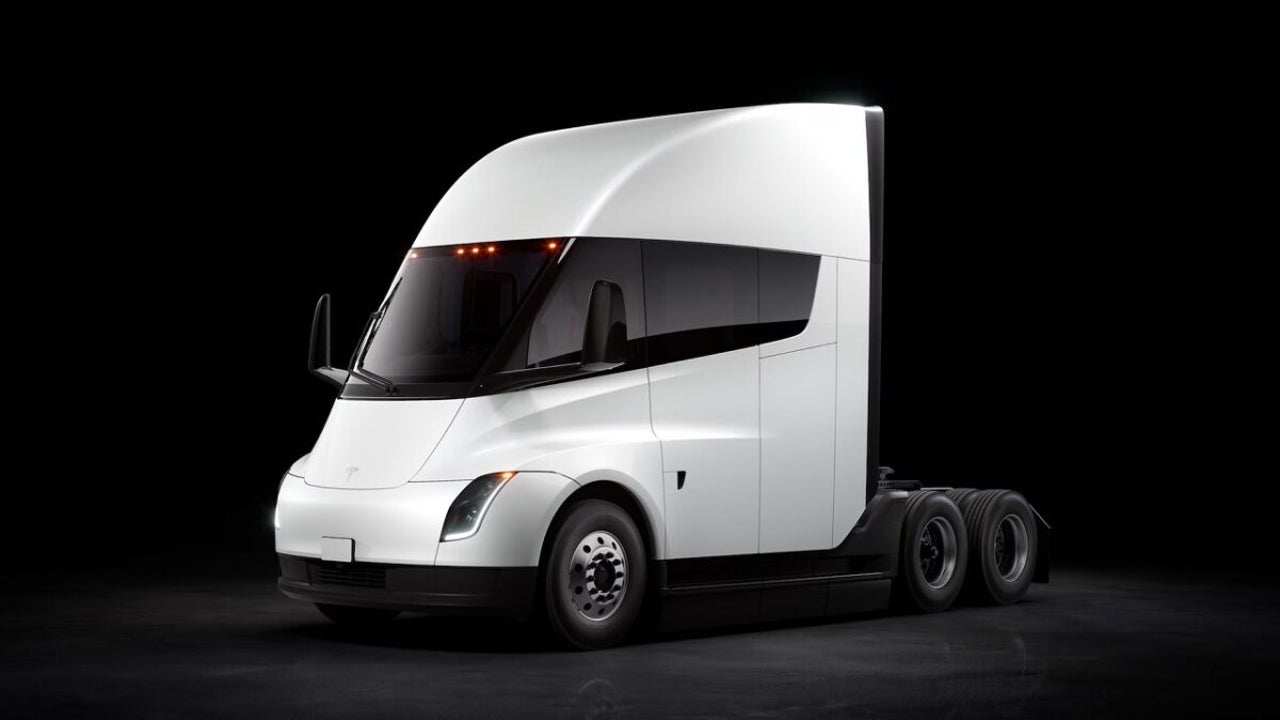Tesla’s Cybercab and Semi Plans Disrupted by Soaring Tariffs
Tesla halts sourcing plans for the Cybercab and Tesla Semi due to a drastic tariff increase, complicating its supply chain and production timeline

- April 19, 2025
- Updated: April 19, 2025 at 8:27 AM

A recent report highlights that tariffs imposed by former President Donald Trump have significantly disrupted Tesla’s plans to source parts for its upcoming Cybercab and Tesla Semi electric trucks.
Initially, Tesla was prepared to absorb an increase in tariffs up to 34%, but the recent hike to 145% has forced the company to suspend its sourcing plans from China entirely.
Tesla’s manufacturing supply chain has been heavily reliant on imports from China, Mexico, Canada, and Europe.
Trade War Forces Tesla to Halt Sourcing from China for New Models
The decision to halt plans for Chinese components comes amid a broader trade war that has complicated logistics for firms like Tesla. With production slated to ramp up later this year at Gigafactory Texas and a new facility in Nevada, the ongoing tariff saga has cast a shadow over the timeline for these highly anticipated models.
The trade landscape is further complicated by reciprocal tariffs imposed by the Chinese government on American goods, which have already led Tesla to stop accepting new orders for its Model S and Model X in China. Industry analysts suggest that the uncertainty surrounding tariffs continues to hinder business operations and forecasting, making it harder for manufacturers to strategize their supply chains effectively.
Although Tesla is known for its impressive vertical integration, which allows it to manage many aspects of its manufacturing in-house, it still relies heavily on parts from other countries. Notably, about 25% of parts for its U.S.-made vehicles originate from Mexico—heightening its vulnerability amid tariff fluctuations. As a strategy, Tesla and others in the industry may need to explore alternative suppliers or reconsider domestic manufacturing options, a prospect that remains uncertain.
Amid this tumultuous landscape, it remains to be seen how quickly the company can adapt to these economic shifts and whether there will be any changes in the tariff policies under the current administration.
Latest from Agencias
You may also like

If you have to pay for only one AI subscription, this is the best one
Read more

ChatGPT is the most downloaded app in the world, but is it enough?
Read more

What the ruling on Google’s advertising monopoly really means
Read more

How to use and configure ChatGPT to protect your privacy
Read more

Elon Musk Promises Fully Autonomous Teslas by Year-End Amid Skepticism
Read more

How to use Plex to watch Netflix, Prime Video, Disney+ and more in a single app
Read more